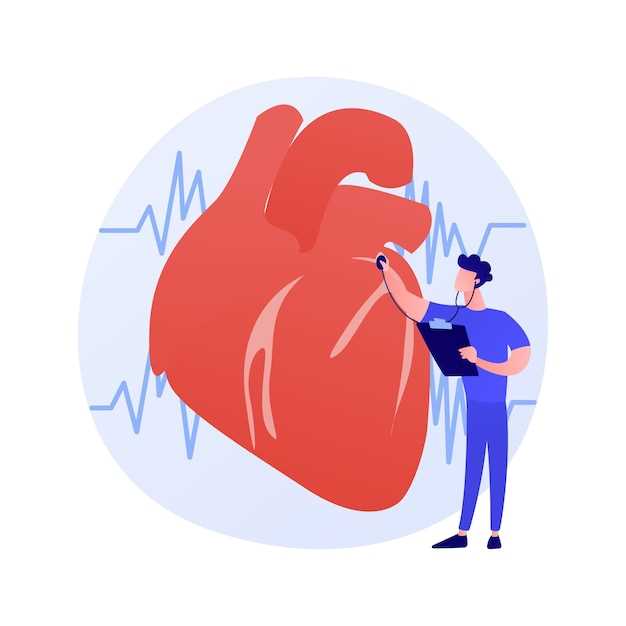
Experience a breakthrough in managing the increased heart rate condition with our innovative product, Bupropion tachycardia. Combining advanced scientific research and cutting-edge technology, our solution offers a unique approach.
What is Bupropion?
Discover the underlying causes and symptoms of an accelerated heart rate.
Are you experiencing rapid heartbeats? It’s important to understand the potential reasons behind this condition and its associated warning signs. Tachycardia, commonly referred to as an elevated heart rate, can be triggered by various factors, including medical conditions, lifestyle choices, and stress.
In this section, we delve into the causes and symptoms of tachycardia, providing you with valuable insights into this cardiovascular issue. Whether it’s a result of physical exertion, hormonal imbalances, or anxiety, knowing how to identify the symptoms is crucial to seeking appropriate help.
Learn about the different types of tachycardia and gain a comprehensive understanding of the effects it can have on your overall well-being. By familiarizing yourself with this condition, you can take the necessary steps towards managing and potentially alleviating its impact on your daily life.
Stay informed and empowered by exploring our in-depth resources on this prevalent heart-related concern. Remember, knowledge is the first step towards taking control of your heart health.
Tachycardia: Causes and Symptoms
Tachycardia is a condition characterized by an abnormally rapid heart rate. This can result in a variety of symptoms that can be both distressing and disruptive to daily life. Understanding the causes and recognizing the symptoms of tachycardia is crucial in order to effectively manage and treat this condition.
Tachycardia can be caused by numerous factors, both external and internal. Some common causes include physiological stress, excessive physical activity, anxiety, certain medications, and underlying medical conditions such as thyroid disease or heart conditions. It is important to identify the underlying cause in order to develop an appropriate treatment plan.
The symptoms of tachycardia can vary depending on the individual and the underlying cause. Common symptoms include a rapid heartbeat, palpitations (a pounding or fluttering sensation in the chest), shortness of breath, dizziness, and fatigue. These symptoms can be disruptive to daily life, causing discomfort and affecting overall well-being.
Understanding how bupropion works can shed light on its potential benefits in managing tachycardia. Bupropion acts by affecting certain chemicals in the brain, helping to restore balance and improve mood. This mechanism of action may also have an impact on heart rate, potentially providing relief for individuals experiencing tachycardia.
The benefits of using bupropion for tachycardia extend beyond its potential impact on heart rate. Bupropion is also commonly used as an antidepressant and smoking cessation aid, offering additional advantages for individuals with co-existing conditions or lifestyle factors. Its versatile nature makes it a valuable option in managing tachycardia.
When using bupropion or any medication, it is essential to prioritize safety. Following the prescribed dosage and instructions is crucial to ensure maximum effectiveness and minimize the risk of adverse effects. It is also important to consult with a healthcare professional for personalized guidance and to address any concerns or questions that may arise.
In conclusion, understanding the causes and symptoms of tachycardia is key to effectively managing this condition. Bupropion offers potential benefits in addressing tachycardia, with its mechanism of action and versatile nature. By prioritizing safety and working closely with healthcare professionals, individuals with tachycardia can take proactive steps towards improving their quality of life.
Bupropion: How it Works

Curious about how bupropion helps manage tachycardia? In this section, we’ll delve into the details of how this medication works to provide relief from this condition. Understanding the mechanism of action behind bupropion can help shed light on why it has become a popular choice among healthcare professionals and patients alike.
Enhancing Cardiovascular Stability

Bupropion has been found to regulate cardiovascular stability by targeting specific receptors in the body. By interacting with these receptors, it can help modulate heart rate and rhythm, bringing them back to a balanced state. This targeted approach not only addresses the symptoms of tachycardia but also aims to prevent future episodes.
Increasing Autonomic Control
Another important aspect of bupropion’s action is its ability to enhance autonomic control. The autonomic nervous system plays a crucial role in regulating various bodily functions, including heart rate. Bupropion works by influencing this system, thereby helping to restore the natural balance of heart rate, resulting in reduced episodes of tachycardia.
By promoting cardiorespiratory stability and improving autonomic control, bupropion offers a comprehensive solution for managing tachycardia. This medication can potentially provide much-needed relief for individuals seeking to regain control over their heart rate and related symptoms.
- Regulates cardiovascular stability by targeting specific receptors
- Restores a balanced heart rate and rhythm
- Enhances autonomic control
- Promotes cardiorespiratory stability
- Reduces episodes of tachycardia
With its unique approach and proven effectiveness, bupropion has become a go-to choice for healthcare professionals in managing tachycardia. If you are experiencing symptoms associated with this condition, consult your healthcare provider to determine if bupropion may be a suitable option for you.
Benefits of using Bupropion for high heart rate
When it comes to managing a rapid heart rate, Bupropion can offer a range of benefits. As an effective medication, it can provide relief and aid in controlling the symptoms associated with high heart rate. Its unique properties make it a valuable option for those experiencing tachycardia.
One of the significant advantages of Bupropion is its ability to regulate heart rhythm, thus helping to bring the heart rate within a healthier range. By targeting the underlying causes of high heart rate, Bupropion addresses the issue directly, allowing individuals to experience a reduced heart rate and improved overall cardiac function.
Furthermore, using Bupropion can contribute to a more balanced autonomic nervous system response. This means that the body’s fight-or-flight response can be better controlled, resulting in decreased instances of an excessively rapid heart rate. By helping to restore a more normalized state of the autonomic nervous system, Bupropion can offer relief from the symptoms associated with tachycardia.
In addition to its cardiovascular benefits, Bupropion has also been found to positively impact mood and overall well-being. By addressing the underlying causes of tachycardia, this medication can help individuals feel more calm, relaxed, and in control. Increased mental and emotional stability can further aid in managing stress-related triggers that may contribute to high heart rate.
It is important to note that Bupropion should be used under the guidance and prescription of a healthcare professional. They can provide personalized advice on dosage and usage, ensuring the maximum benefits are achieved while minimizing potential side effects. Bupropion is just one of the many options available for managing tachycardia, and consulting with a healthcare professional is essential to determine the most suitable approach for each individual.
Overall, through its heart rate regulation capabilities, impact on the autonomic nervous system, mood-enhancing properties, and guidance by healthcare professionals, Bupropion offers a promising path towards managing tachycardia effectively.
How to Use Bupropion Safely
When it comes to safely utilizing this medication to address the condition at hand, it is important to adhere to specific guidelines and precautions. Keep in mind that the key lies in responsible and informed usage.
Taking appropriate dosage: It is crucial to follow the prescribed dosage recommended by your healthcare professional. Adhering to the designated amount will help ensure the safe and effective use of the medication, while minimizing the risk of potential side effects.
Timing and frequency: Take the medication as advised, adhering to the recommended schedule. Consistency is key in achieving the desired outcomes while minimizing any potential complications.
Monitoring heart rate: Given the nature of the condition and its possible effects, track your heart rate during the course of the treatment. Keep an eye out for any irregularities and promptly consult with your healthcare provider if any concerns arise.
Staying informed: Stay well-informed about the potential side effects and warnings associated with the medication. This knowledge will enable you to recognize any symptoms that may require medical attention, allowing for timely intervention and assistance.
Supportive measures: In addition to the medication, it is essential to adopt a holistic approach to your well-being. This includes following a healthy lifestyle, incorporating regular exercise, managing stress levels, maintaining a balanced diet, and ensuring adequate hydration.
Remember, responsible and informed usage of this medication, in conjunction with a comprehensive approach to health, can significantly contribute to the safe and effective management of the condition.
